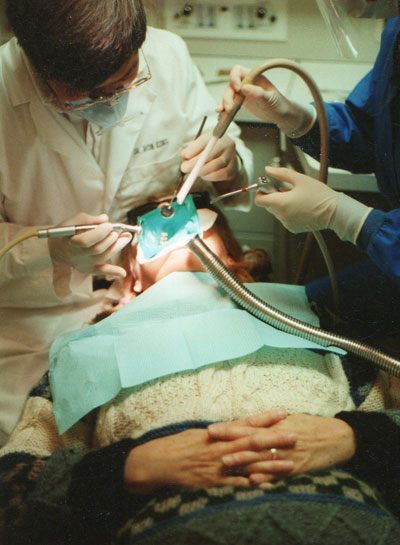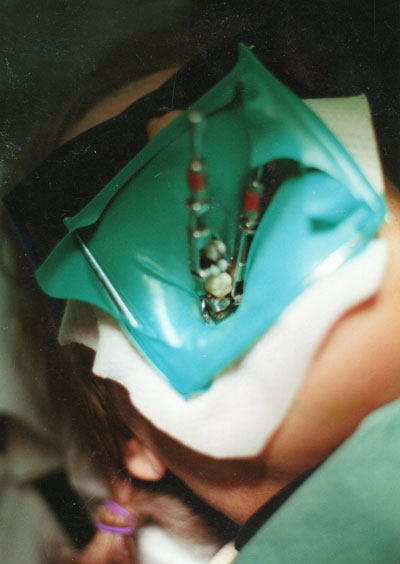Medical Hypnoanalysis Can Set You Free!
One of the most common reasons people visit a Medical Hypnoanalyst is to overcome fears or
phobias. Fears are a natural part of life. Everyone fears something such as being robbed, or
being hurt in an accident. This type of fear is not necessarily bad; as it may prompt someone to
take precautions, such as locking doors or wearing safety belts.
Most fears develop during childhood, but fears can develop during adulthood. Some fears that develop in adulthood are caused by chemical imbalances such as a hypoglycemic reaction, but many are the results of repressed memories. One indication of whether fear is physical or psychological is the duration of the reaction. Psychological reactions are usually triggered by anticipation and become less intense once the anticipated event begins. Physical reactions tend to become more intense once the event begins.
Fears often emanate from apprehension of impending danger. Fear of loss of control is primitive, but also common, especially in phobia cases. Fear of fear itself can be debilitating. Hypnotic suggestions can replace catastrophic thoughts with truthful facts explaining existing problems. Exposing the causes can diminish anxieties and alleviate symptoms, relieving distress.
Once a sense of control is established, repeatedly confronting the fear through Medical Hypnoanalysis quickly reduces, and soon eliminates the fear.

Afraid of Physicians?
Medical Hypnoanalysis can help alleviate your fears!
Innumerable people let major and even life-threatening injury to happen in their bodies merely because of irrational fears of visits to physicians or dentists. Such fears come from false convictions that these visits will entail pain. Some people take the potentially lethal fear that an appointment will generate terrible news, living under the absurd notion that “what you don't know won't hurt you.”
It is not likely even to calculate approximately the number of people who have died purely because, while they knew something was in the wrong, they did not wish for the facts confirmed by a physician. Scores of even the most severe disorders can be halted or cured by early detection, acknowledgment, and treatment. Eliminating the fears of medical attention can produce cures, cut expenses, speed healing, eradicate needless apprehensions, diminish family difficulty and reduce any disruption of earnings.
Medical Hypnoanalysis is the means of choice for achieving the state of mind indispensable to bring about the diminution or riddance of incapacitating fears.

Fear of Dentists?
You Can Relax with Medical Hypnoanalysis
Fear of a dental appointment is nearly instinctive. Children have heard tales of excruciating pain suffered (and embellished) by other children. Stories and comic strips have featured dental offices as chambers of horrors. Some parents have even threatened children with dental appointments as punishment-“If you don't brush your teeth you'll have to go to the dentist!” Dentists appear constantly to get a bum rap. Until now no one seemed to focus on the reality that the supreme expenditure, and the maximum pain if any occurs at all, more often than not results from not going to a dentist.
Preventive dentistry exists and for those who put it into practice, the payback is inestimable. But many people, children, and adults, plainly don't buy the idea. They see only the mentally visualized “chamber of horrors.” Fears of dentists are among the comparatively frequent phobias seen by Medical Hypnoanalysts.
Ever-increasing numbers of dentists are using hypnosis for pain management in place of or in addition to local anesthesia. Extractions and dental surgery under such circumstances are becoming more utilized, with payback to dentists and patients alike. Numerous dentists also are using individual instruction and skills in hypnosis to help patients relax and develop into a more comfortable state of being ahead of any dental work and to offer post-hypnotic suggestions which can make upcoming visits liberated from fear and even agreeably anticipated. Some dentists even have Medical Hypnoanalysts make office visits to assist.
These measures, nevertheless, are achievable only with the patients who, frightened or not, come to the dental office. For those whose fears are such that they in no way come within reach of the door, Medical Hypnoanalysis offers the hope of removing or reducing the apprehensions and prejudices, achieving relaxation and positive mental attitudes, and understanding the benefits of dental care and risks of avoiding it. Hypnosis can motivate me the visit. This is an area for the Medical Hypnoanalyst.
Dental Hypnoanesthesiology
Guided by Bill Ronan







